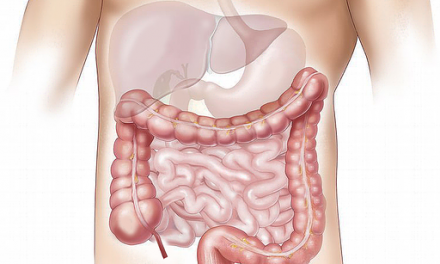NEW ON DRSUE.CA! Prefer to listen? Check out my audio recording of this post here:
Hot off the presses! The new international evidence-based guidelines for the assessment and management of polycystic ovary syndrome (PCOS) were recently published.
This guideline is over 250 pages long, and has nearly 30 pages of recommendations. It is an impressive document, covering all aspects of PCOS from risk assessment, patient care, lifestyle management, management of infreqent periods, unwanted hair growth (hirsutism), and fertility.
Today I am focusing on what this new guideline says about weight management. Here are some of the key points!
First, it’s important to point out that while many women with PCOS also have elevated weight due to excess fat tissue, there are many women with PCOS that are lean and should not lose weight. For women with PCOS and elevated weight, weight management can help to improve symptoms of PCOS.
While there is not a clear physiological difference related to weight in women with PCOS compared to those without, they go on to say that many women with PCOS will have underlying mechanisms that drive greater long term weight gain which may cause challenges with weight managment. Most women with PCOS have some degree of insulin resistance, but we still haven’t quite figured out how insulin resistance may make it more difficult to lose weight (as we clearly see in the field of type 2 diabetes).
PCOS carries an increased lifetime risk of developing other metabolic health issues, such as diabetes, hypertension (elevated blood pressure) and high cholesterol, so these are important to screen for regularly. Elevated weight in PCOS increases the risk of endometrial cancer in PCOS. Reducing weight in women with PCOS and obesity can reduce these health risks.
Health care professionals should be aware of weight stigma. Discussing obesity in an open, understanding and nonjudgmental fashion is essential. Ask permission to discuss and measure weight. Having a weight-inclusive practice that promotes acceptance and respect for body size diversity is important.
PCOS can have a negative impact on body image. The guideline also notes that higher weight can influence psychosexual function. Eating disorders and disordered eating should be considered in PCOS, regardless of weight. These are important issues to explore and take into consideration in formulating the best approach and treatment plan with each patient.
For weight management, they advise that healthy lifestyle behaviors should be recommended to optimize health, and for weight management (be that maintaining weight, preventing weight gain, and/or for modest weight loss, as appropriate to the individual). They stress that there are are benefits to a healthy lifestyle even in the absence of weight loss.
In those with excess adipose (fat) tissue, weight management can help prevent further weight gain, or help with weight loss, and can help reduce the central visceral fat (in and around the abdomen) associated with insulin resistance.
There is no particular dietary approach, nor particular intensity or type of exercise, that is better than another for women with PCOS for metabolic, hormonal, or reproductive outcomes. A flexible, individualized approach should be discussed, that incorporates the desires, preferences, and goals of that person.
Weight management medications can be considered for management of elevated weight in adults with PCOS as per general population guidelines. (As noted in our Canadian Obesity Clinical Practice Guidelines on pharmacotherapy (disclosure: I am the lead author), there is data lacking on weight management medications specifically for improvement in PCOS features like menstrual frequency. These studies need to be done). Effective contraception is essential for women on weight management medication.
Bariatric surgery could be considered to improve weight loss and metabolic health issues, hirsutism, irregular menstrual cycles, ovulation, and pregnancy rates in women with PCOS and obesity. PCOS is a metabolic condition and could be considered a reason for bariatric surgery at a lower BMI threshold, similarly to other metabolic conditions including diabetes. There is a likelihood of rapid return of fertility, and the need to commit to effective contraception is essential. Contraception should be continued until a stable weight is achieved, usually at least 1 year after surgery, to avoid significantly increased risk of fetal growth restriction, prematurity, small for gestational age, and pregnancy complications.
Subscribe to my blog (upper right)!
Follow me on X – twitter @drsuepedersen
Share this blog post using your favorite social media link below!
www.drsue.ca © 2023












